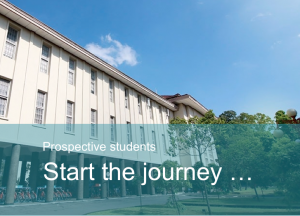The word “networking” is more about activity. The computer system does not discuss about electronics at level of components, such as transistor, etc., but it does only at level of RTL (Register-Transfer Level) and above. Computer and Network System Laboratory has the following research fields:
- Computer systems, viewing computers as composed of integrated circuits (CPU, RAM, ROM, etc.) and equated with Computer Systems Engineering according to CC2005 classification (Computing Curricula 2005) from ACM/IEEE. Issues to be covered include FPGAs (Field-Programmable Gate Arrays), microcontrollers, DSP (Digital Signal Processing) chips, GPGPU (General Purpose Graphic Processing Unit) and their utilization as a computing platform. Computer systems cover computing platforms required to run algorithms/applications developed by other labs. The computer system develops competence of how the computer components can be compiled into an efficient computing platform (using minimal resources, fast, and with minimal cost and processing time). Another issue is the automation using software to facilitate the development of computing platforms, for example using VHDL, Verilog, Matlab, LabView, Proteus, and compilers for microcontrollers etc.
- System Programming and Networking is programming at layer under general application. This comprises measuring application (Instrumentation) and computer system management and networking required in achieving performance of computer, also standardization the measurement results. Another interesting issue is standardization the security measurement.
- Wireless Sensor Network (WSN) is utilization of science and computer network also telecommunication technology in measurement and monitoring activities. As a telecommunication media, it is useful in technology of satellite, cellular, telemetri, etc. While as a sensor, it is used in nodes sensor, RFID, and even smart phones. This issue is very strategic in Indonesia, even though security problems might be caused from stealing. The discussion may start from BAN (Body Area Networking), for instance monitoring health of human (or animal) body only, also wide-scale area networking for monitoring a region, island, continen, etc. An efficient deployment strategic and safe from stealing, vandalism, and sabotage is an interesting research issue. Another interesting issue is utilizing network to facilitate communication during natural dissaster. Smart/intelligent environment.
- Network Management and Maintenance is an activity of computer network management and maintenance. In this sub-activity various algorithms and tools for the management and maintenance of computer networks will be examined to enable network computers working on the desired level of performance. Issues that can be discussed include scalability, fault-tolerance, disaster recovery, business continuity planning and execution, and also sabotage and infiltration (network survivability), etc.
- Security will be developed with emphasis on security protocol, access control, and software reliability, as well as social engineering to match the behavior of Indonesians. If necessary, a cryptographic algorithm will be developed, which is not fully independent on the platform where the algorithm is run. For example, not all algorithms are suitable to be embedded in mobile phones or microcontrollers / FPGAs.
- Network and Telecommunications will examine the various issues on transferring data from one place to another such as modulation, mutiplexing, compression, protocol, etc. Here, at the initial stage, software such as NS-3, Glomosim, Matlab will be used. The characteristics of the faculty (more scientific) will be highlighted by focusing on aspects of algorithm and optimization, not on aspects of device development.
- Operating System will be researched, and also at the same time operating system for special needs and general purpose may be developed, for example Linux, Android, RTOS and NOS.
- Social Networking will be studied and examined as the success of initiative and deployment of infrastructure and computing facilities will not work unless paying attention to social aspects.
- Networked and autonomic computing, is a research related to computer systems’ capability of managing themselve to cope with the increasing complexity of computer systems and reduce the barriers in developing computer systems.
The member of Computer and Network System Laboratory:
| Name of Staff | Interest and Expertise |
| Dr. Mardhani Riasetiawan, MT | Cloud computing |
| Dr. techn., Ahmad Ashari, M.I.Kom | Distributed System and Grid Computing |
| Muhammad Idham Ananta Timur, S.T., M.Kom. | Pervasive Computing, Distributed Systems, Cloud Computing |
| Triyogatama Wahyu Widodo, M.Kom. | Network and Distributed Programming |
| Dr. Yohanes Suyanto, M.I.Kom | Synthesis of Speech and Network Programming |
| Lukman Heryawan, MT | Cloud and Autonomic Computing |
| Dr. Tri Kuntoro Priyambodo, M.Sc | Telecommunication and Real-time Systems |
| Drs. Bambang Nurcahyo Prastowo, M.Sc | Information Security and Social Networking |

